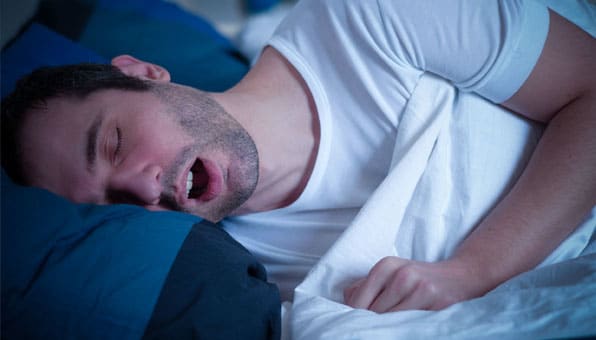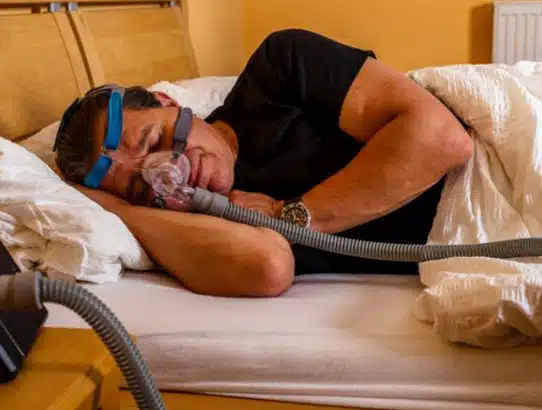
Do You Wake Up Every Morning Completely Exhausted?

There Are Two Different Kinds of Sleep Apnea.
Obstructive sleep apnea, or OSA. This is the most common type and occurs when your airway is blocked. Usually, the blockage is your tongue or other tissues near the back of your mouth.
Central sleep apnea. This type of sleep apnea is caused by faulty communication between your brain and the muscles that control your breathing.
Symptoms of Sleep Apnea
You snore.
You wake up in the morning with a dry or a sore throat.
You feel sluggish and tired all day and find it difficult to perform tasks.
You may fall asleep during the day, even at work or behind the wheel of your car.
You are easily irritated.
You may find it difficult to control your emotions.
How Is Sleep Apnea Diagnosed?
Treatment Options for Sleep Apnea
Weight loss. For some, losing weight can solve sleep apnea.
Continuous positive airway pressure machine. A C-PAP machine delivers a constant stream of air through a small mask worn over your nose.
Oral appliance therapy. We can provide you with a custom fit oral appliance that is made to wear while you sleep. This treatment is suitable for those with mild to moderate sleep apnea and can be used by those who have issues with or do not want to use, a C-PAP machine. The oral appliance is similar to a mouth guard, covering your top teeth. It holds your jaw in proper alignment, preventing the oral tissues from slipping back into your throat.
Oral surgery. In severe cases of sleep apnea, surgery may be recommended. There are few different surgical procedures that may be recommended based on your specific situation.
